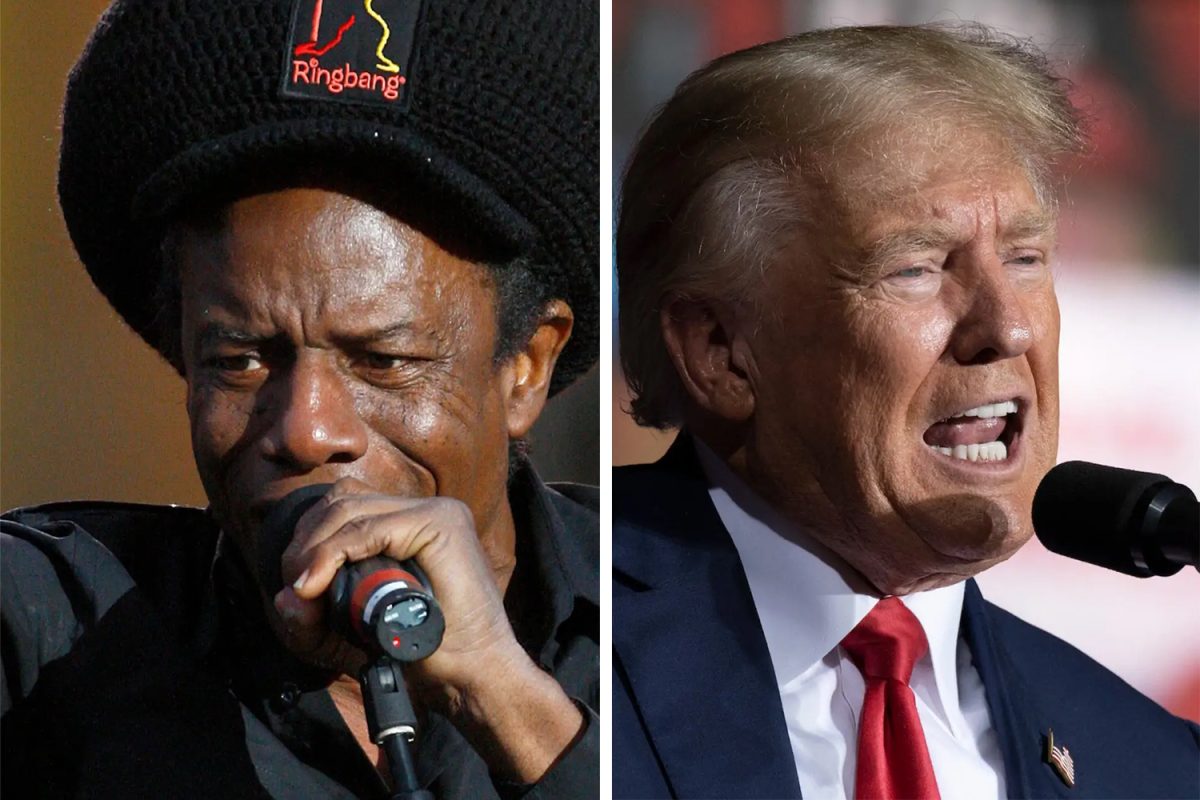Eddy Grant Wins Copyright Lawsuit Against Donald Trump Over ‘Electric Avenue’

A federal judge in New York has ruled that former President Donald Trump infringed on the copyrights of British-Guyanese singer Eddy Grant by using his Reggae-fusion hit Electric Avenue (1982) in a 2020 campaign video without permission.
In his Friday (September 13) order granting partial summary judgment in favor of Grant, Judge John G. Koeltl rejected Trump’s argument that his use of the song was protected under fair use, stating that the video had a “very low degree of transformativeness, if any at all.”
“The video is best described as a wholesale copying of music to accompany a political campaign ad,” the judge wrote in his order obtained by DancehallMag.
Grant, along with Greenheart Music Limited, had filed the US$300,000 lawsuit in 2020 after Trump used the song in a social media video featuring a “Trump” train outrunning a Joe Biden handcar. Grant’s iconic track played for over two-thirds of the video’s duration, which was viewed by millions of Trump’s followers.
In his complaint, the singer expressed his dismay at being asked whether he had approved the use of his music for Trump’s campaign.
On Friday, the court also emphasized that the song’s use in a political campaign could not be justified as a fair use since it was unaltered and played a significant part in the video’s overall message. Judge Koeltl noted, “The song is immediately recognizable, and the video’s creator did not edit its lyrics, vocals, or instrumentals at all.”
Although Trump has been held liable for copyright infringement, the court is yet to determine the amount of damages he must pay Grant.
Further proceedings will settle the issue.
Eddy Grant is one of many artists who have resisted Trump’s use of their music without permission, including during the 2024 election cycle. Beyoncé, Celine Dion, and the Foo Fighters are among several musicians who have spoken out or taken legal action against Trump’s campaign. Earlier this month, the former president was ordered to stop using Issac Hayes’ song Hold On, I’m Coming at his rallies, according to the BBC.
Grant’s Electric Avenue appeared on his album Killer on the Rampage, released in 1982.
The song is named after a street in Brixton, South London, which was the first market street in the area to be lit by electricity. Eddy Grant first learned about the street while acting at the Black Theatre of Brixton, a neighborhood now known for its large Caribbean immigrant population. In the early 1980s, tensions over unemployment, racism, and poverty—worsened by racist policing—sparked the 1981 Brixton riot, as documented in the Scarman Report. Deeply affected by the events, Grant wrote the song in response.
The song ascended to No. 2 on the Billboard Hot 100 chart, where it spent five weeks, and No. 2 on the UK Singles Chart.
It is currently certified Platinum in the United States (1 million units) and Silver in the UK (200,000 units).
